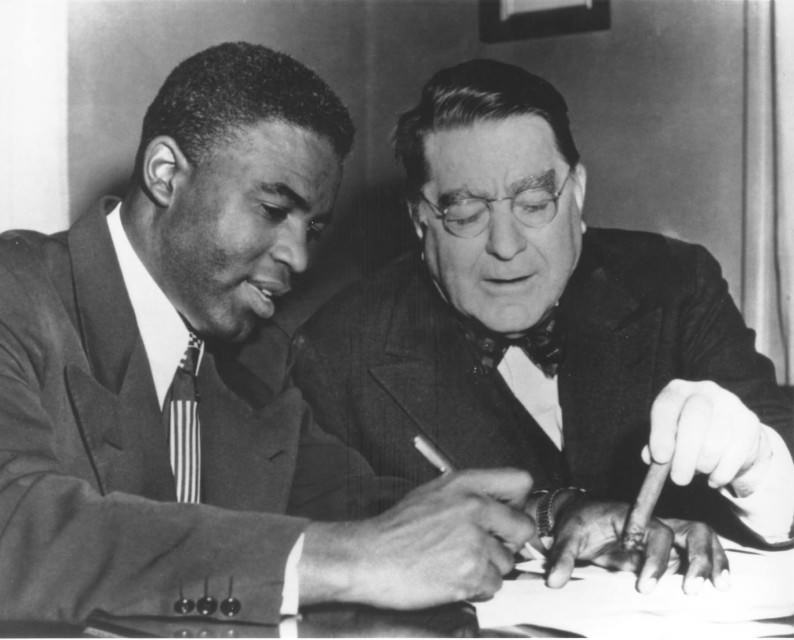
Branch Rickey: Coach and Teacher for Life
Branch Rickey, a 1904 Ohio Wesleyan graduate, was named the most influential figure of the 20th century in sports by ESPN. The voting was done by a panel of 48 journalists, historians, observers, and administrators as part of ESPN’s SportsCentury documentary series. The series included programs on the 50 greatest North American athletes of the 20th century as well as shows on the greatest coaches, games, dynasties, and influential people of the 1900s.
Then president and general manager of the Brooklyn Dodgers, Rickey decided that in order for baseball to be truly “the national pastime,” a long tradition of whites-only would have to be broken. With some help and cooperation from baseball commissioner A.B. “Happy” Chandler and, eventually, the other Brooklyn players, Rickey and Jackie Robinson made history by integrating the long-segregated game.
Rickey’s experiences more than 40 years earlier at Ohio Wesleyan foreshadowed his promotion of Robinson.
After playing at Ohio Wesleyan in 1901-02, Rickey signed a professional contract. Thus ineligible to play further, Rickey became the University’s baseball coach and athletics director while still a student. On his team beginning in the 1903 season was Charles Thomas, a black student from Zanesville, Ohio, and one of the first blacks in college baseball.
During that season, Thomas was denied lodging at a hotel in South Bend, Ind. Rickey was able to convince the hotel manager to allow Thomas to stay in his room as an unregistered guest, but the event and the sight of Thomas sitting on the bed weeping were burned into his memory and proved to be his inspiration in Brooklyn.
Born in a farming community in southern Ohio, Rickey had a strong interest in sports, academics, and business but his moral and religious beliefs always came first. He put his baseball career in jeopardy by refusing to play for the Cincinnati Reds on Sundays. In later years, he stipulated in his contracts as a manager, general manager, and president that he would not manage or even be in the ballpark on Sundays all to honor a promise he made his mother before signing his first professional playing contract years before.
While still playing professional baseball in the summers, he returned to Ohio Wesleyan to coach and teach for several years before returning full-time to major league front offices. Rickey also was credited with developing the farm system of minor league teams while with the St. Louis Cardinals in the 1920s and 1930s and pioneering the use of batting helmets while with the Pittsburgh Pirates in the 1950s. After his stint with the Pirates, his plans to begin a third major league helped prompt the first expansion of Major League Baseball.
Rickey’s dedication to Ohio Wesleyan was a lifetime commitment. He frequently returned to Delaware and served as a lifetime trustee. At the time of his death in 1965, he was national chairman of the University’s capital campaign.
As one measure of its gratitude, Ohio Wesleyan named its new sports facility the Branch Rickey Physical Education Center, dedicated to his memory in 1976.